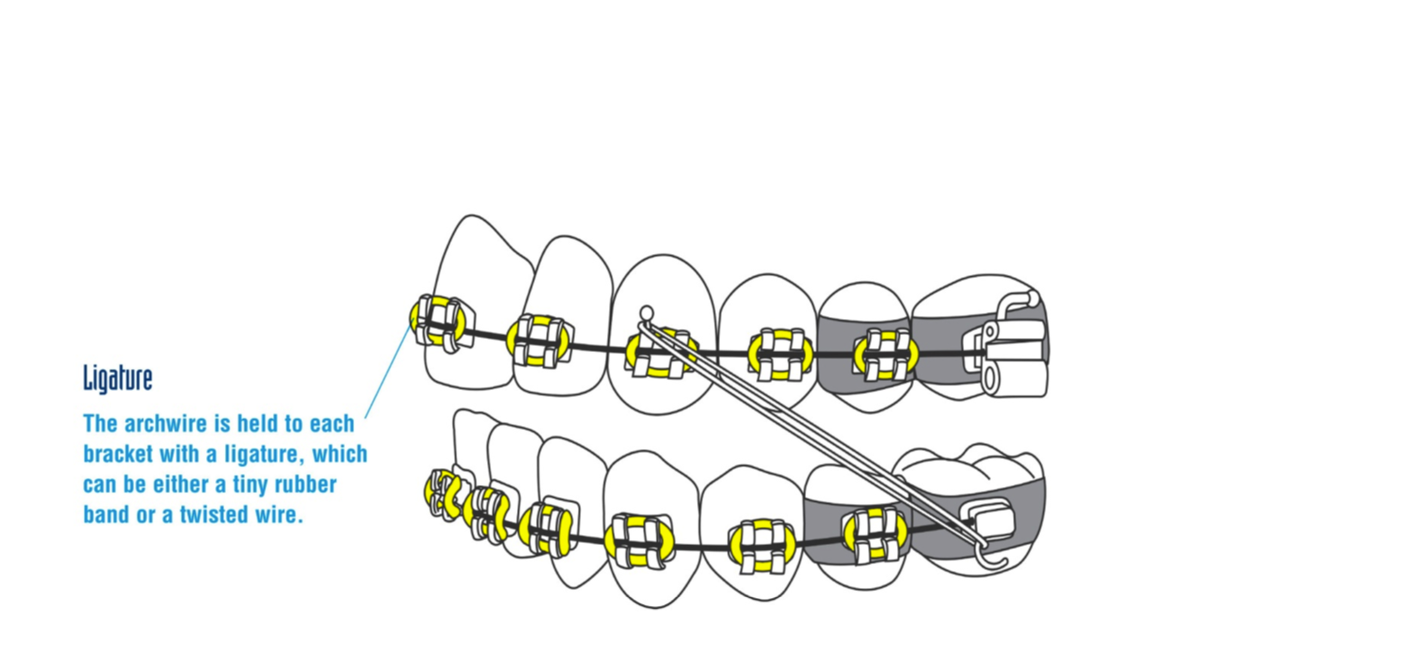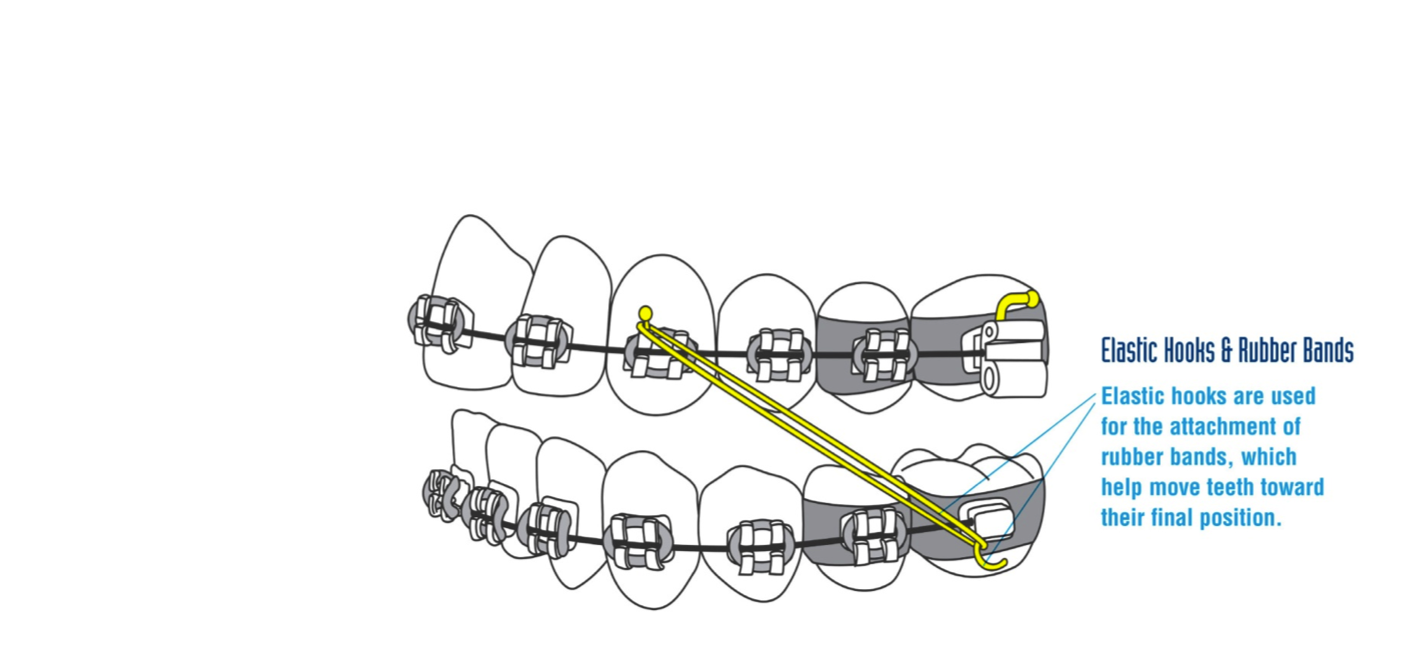
Parts of Braces
Ligature
It’s a tiny rubber band that is stretched around the bracket. It holds the wire so that it can deliver force to the teeth and move them. Patients often select fun, bright or dark colors for their rubber ligatures. The ligatures are changed at each adjustment appointment.
Metal Band
The “band” is a metal ring that wraps around a tooth – usually a molar – to provide anchorage and durability. The band is cemented to help it stay in place for the duration of treatment. Separators will be placed between teeth to make spaces for these bands.
Elastic Hooks and Rubber Bands
Elastic hooks are used to attach rubber bands. These are the rubber bands that patients put in an take out themselves. They are often prescribed to help move the teeth toward their final positions. Wires alone cannot always move teeth where they need to go. Compliance with rubber band wear on the part of the patient is critical to achieve an ideal result. Rubber bands will not necessarily be prescribed for every patient.
Archwire
The archwire, or wire, fits in horizontal slots in each bracket. The wire is secured to all of the brackets with ligatures or power chains
Brackets
Brackets are generally bonded to the front side of the teeth using medical grade adhesive. Brackets serve as handles to hold the wire in place.Today’s brackets are small and sleek, especially compared to brackets of a generation ago– or even those from 10 or 15 years ago. These brackets are made of high strength stainless steel for speed and durability. But some young patients opt for ceramic brackets.
Bite Prop or Bite Ramps
These lumps of materials are placed on the back of your upper front teeth or in the back molars to separate your upper and lower teeth apart. This is done for deep bite patients to prevent the accidental biting of the brackets. It will take 1 to 2 weeks to get used to speaking and/or eating with them.





